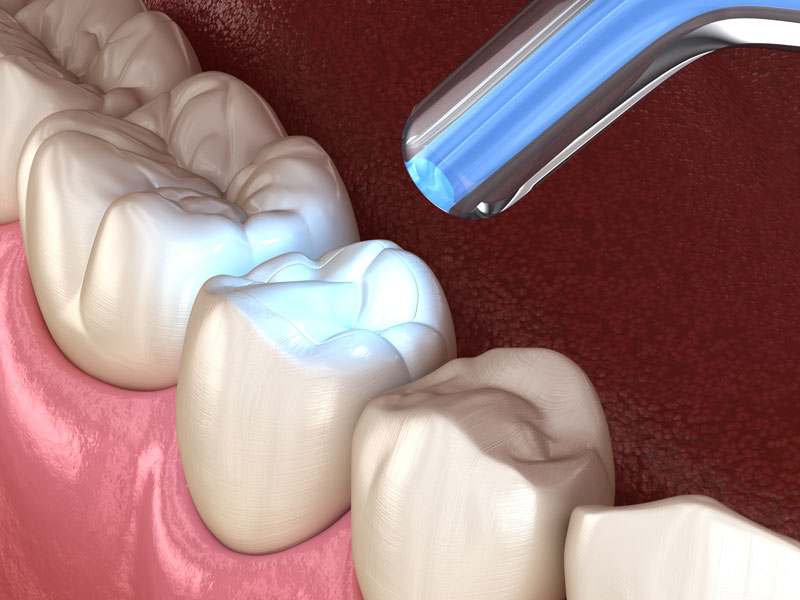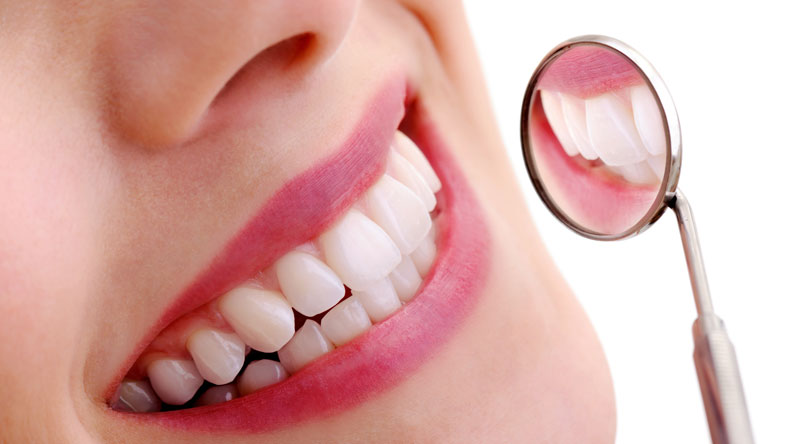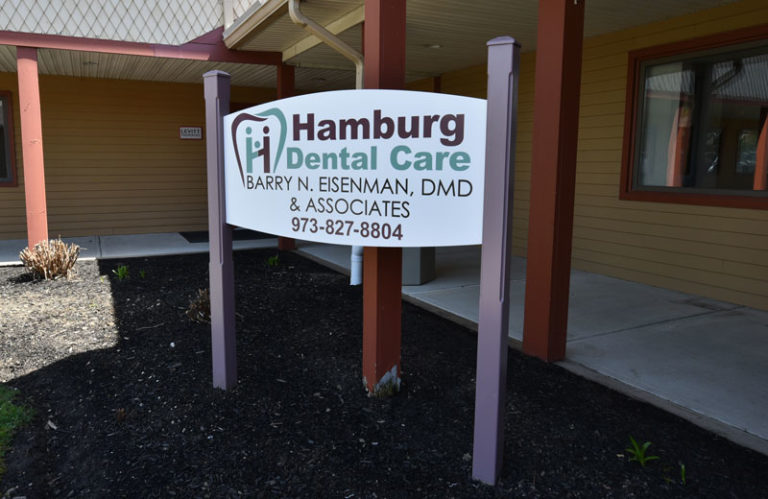What is Dental Bonding?
Dental bonding, also known as composite bonding, is a process used by dentists to fix minor dental issues. The procedure is done by covering the teeth with a resin composite that is colored to resemble healthy teeth.
There are multiple purposes for getting dental bonds, such as fixing cosmetic issues or even slowing degradation. In this blog, we’ll outline a quick guide to the good and bad about dental bonding.
We will also discuss some of the reasons your dentist may think this is the right procedure for you.
How is it Done?

Bonding is a cosmetic dental procedure where tooth-colored resin is bonded to teeth. First, a small layer of existing enamel is removed to make room for the resin. The tooth is then covered with a resin and cured with a special light or bonding agent.
There is no need for harsh chemicals or waiting on a multi-visit process, as dental bonds only take about half an hour to complete. This is a painless procedure, so you won’t have to worry about missing out on work or daily plans due to oral pain.
What Exactly is Dental Bonding Used For?
Dental bonding is an effective method used to improve the look of teeth and the mouth. Here are some of the top reasons for this procedure:
- Repair decayed teeth
- Repair chipped or cracked teeth
- Improve discolored teeth
- Close spaces between teeth
- Obtain longer looking teeth
- Change tooth shape
- Replace silver fillings with a better-looking alternative
- Protect your teeth after your gums recede
- Dental bonding has a wide range of benefits.
Dental bonding has proven to increase the healthiness of teeth and improve the look of your smile. Your teeth will look and feel stronger. It is a procedure that will leave you happy with the overall health of your teeth and gums.
Pros and Cons of Dental Bonding

Pros:
Cost:
Although the cost of dental bonding ranges from $300-$600 per tooth, there are many insurance plans that cover the cost. This can make it the easiest and least expensive option when it comes to fixing a tooth.
Ease:
This may be one of the easiest cosmetic dental procedures. Very little enamel is removed as compared to other procedures and it does not require anesthesia.
Speed:
As previously stated, the procedure is very quick. A good dentist will have you in and out of the office in under 60 minutes.
Cons:
As always, it is important to speak to your dentist about treatment options. While this procedure is right for some, it may not be a good choice for others. Here are a few reasons your doctor may not want to use dental bonding:
Stains:
Overconsumption of certain substances may stain your bonded areas. Coffee, tea, wine, and even cigarettes can cause issues with the whiteness of your bonds. Often dentists won’t suggest this procedure for the dental care of avid smokers.
Durability:
Although dental bonds are tough, they aren’t quite as tough as veneers. If you undergo this procedure, you will have to be careful with tough or sticky foods as they could crack or chip your bond.
What Can You Expect to be Fixed?
The process can help to strengthen the teeth and slow down different dental issues including (but not limited to): tooth decay, discoloration, and chipped or cracked teeth.
After the procedure, you will notice improvements in the shape of your teeth and corrections to the gaps between them. Dental bonding can last a long time if cared for properly. Typically, replacement is needed every three to ten years.
How Can I Take Care of my Dental Bonds?

- Drink less red wine, tea, and coffee.
- Quit smoking. Aside from turning your bonding black, cigarettes cause oral diseases and cancer.
- Avoid hard substances including your nails, carrots, ice, or anything else that can cause chipping.
We Cater to Cowards!
Dental bonding is a great way to improve the look of your smile and keep your teeth healthy. For more information about your oral care, contact us. Not only do we cater to cowards by offering pain-free anesthesia, but we also offer affordable payment plans for people worried about dental costs.




